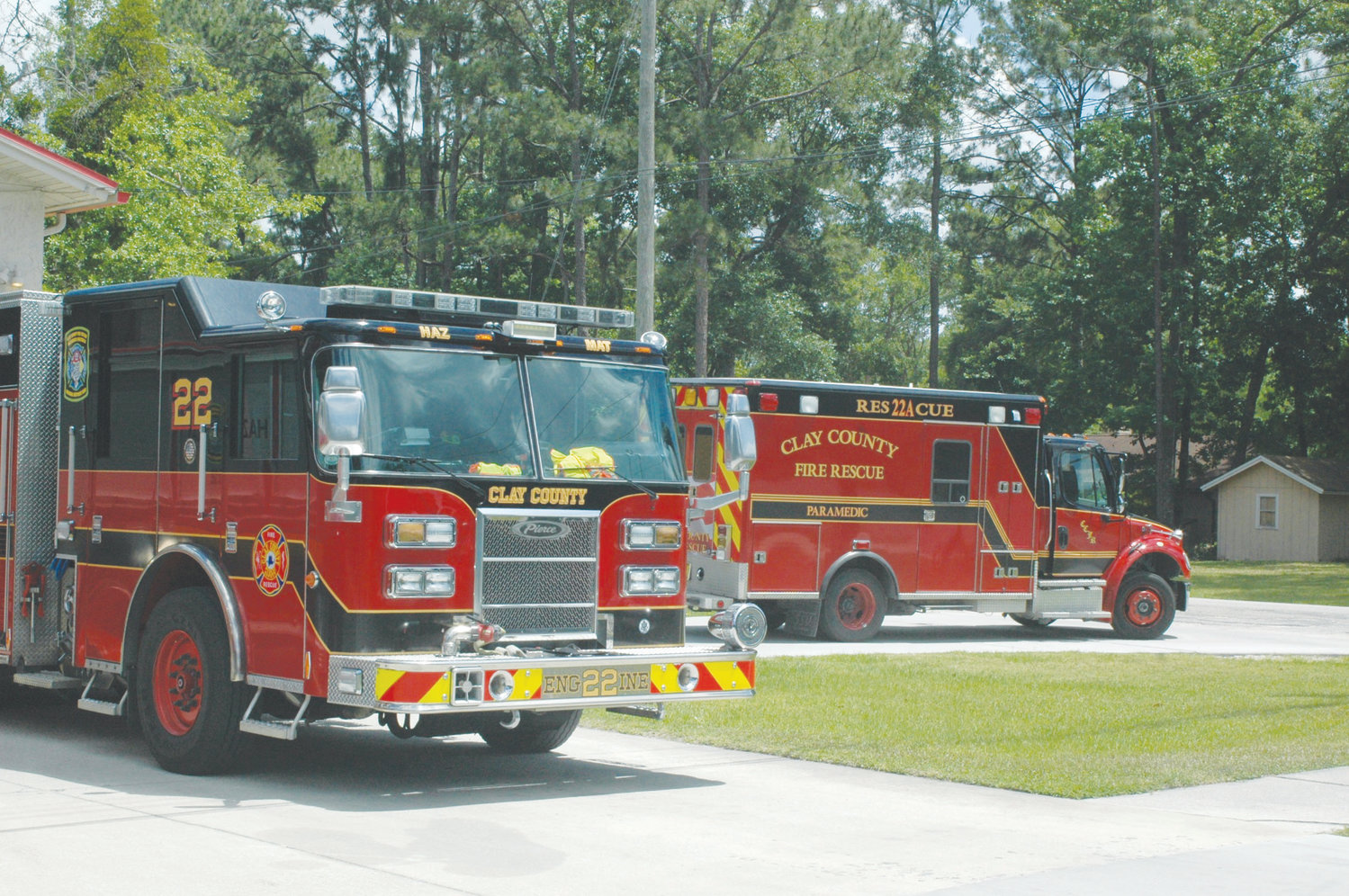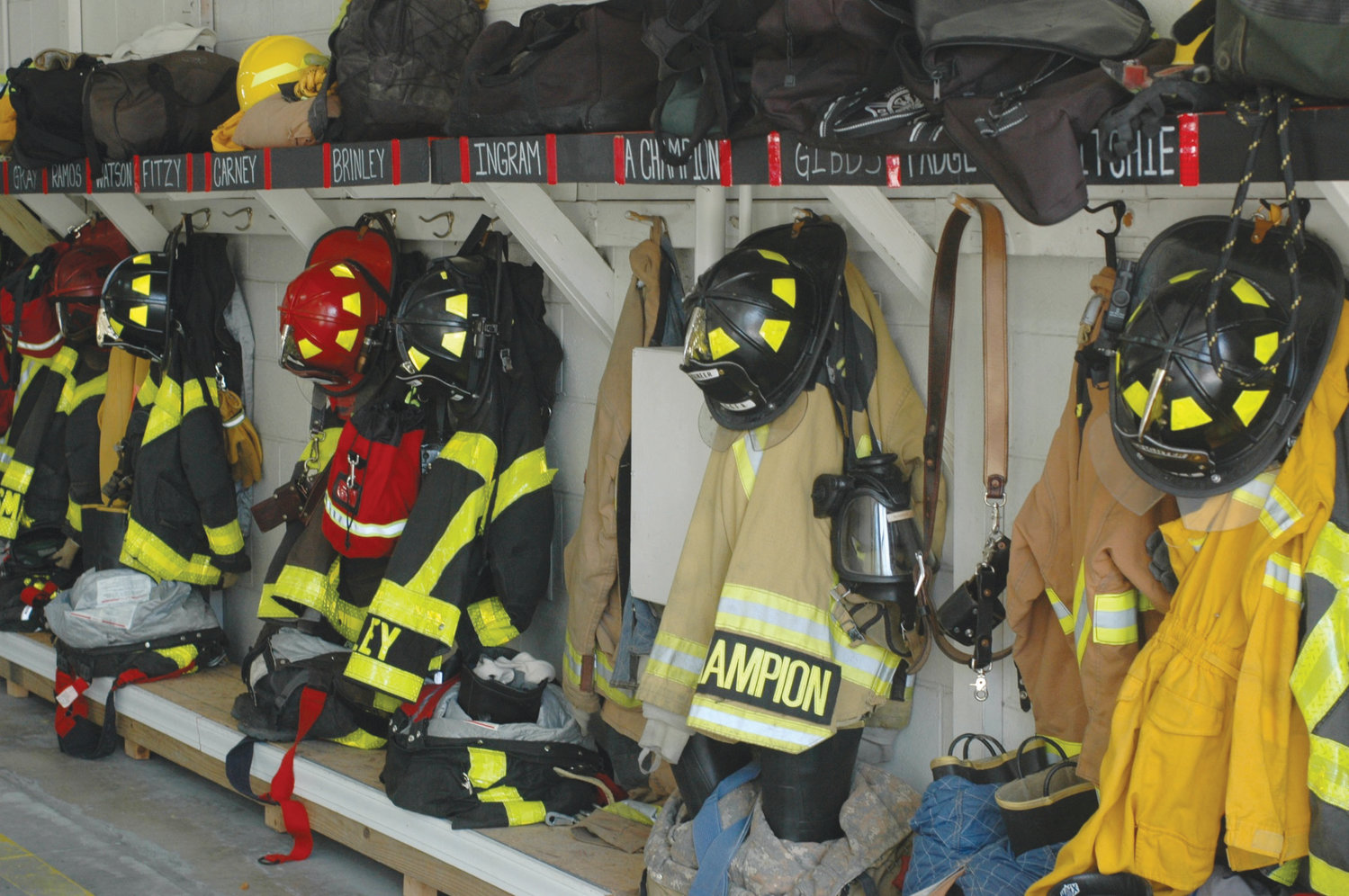State finally comes to rescue of firefighters stricken with cancer
CLAY COUNTY – Firefighters face a 9-percent increase in cancer diagnoses, and a 14 percent increase in cancer-related deaths, when compared to the non-firefighters. But until April 23, they …
This item is available in full to subscribers.
Attention subscribers
To continue reading, you will need to either log in to your subscriber account, or purchase a new subscription.
If you are a current print subscriber, you can set up a free website account and connect your subscription to it by clicking here.
If you are a digital subscriber with an active, online-only subscription then you already have an account here. Just reset your password if you've not yet logged in to your account on this new site.
Otherwise, click here to view your options for subscribing.
Please log in to continueDon't have an ID?Print subscribersIf you're a print subscriber, but do not yet have an online account, click here to create one. Non-subscribersClick here to see your options for subscribing. Single day passYou also have the option of purchasing 24 hours of access, for $1.00. Click here to purchase a single day pass. |
State finally comes to rescue of firefighters stricken with cancer
CLAY COUNTY – Firefighters face a 9-percent increase in cancer diagnoses, and a 14 percent increase in cancer-related deaths, when compared to the non-firefighters. But until April 23, they received virtually no work compensation or disability relief.
Now that the Florida Congress has passed State Bill 426, though, that’s soon to change.
Traditionally, when a firefighter was diagnosed with cancer, their insurance helps with the actual costs for treatment and associated doctor appointments. Chemotherapy and subsequent radiation take a heavy toll on the body, and during the periods in between these treatments, it’s often difficult for someone to resume work. Before SB 426, a firefighter had to use a sick day or lose a day’s pay if he was too sick to work.
“That won’t be the case anymore,” Acting Fire Chief of Clay County David Motes said. “Before, we’d have to take administrative leave for something like chemotherapy but [SB 426] turns the table on that. Now, it’s treated as a line-of-duty injury.”
According to Motes, cancer now is being treated as a line-of-duty injury, which means if the illness resulted because of the job, a firefighter would be able to collect benefits like worker’s compensation and disability relief.
Bill Hamilton, president of Hoods for Heroes, said SB 426 is a big win for Florida firefighters. He also said it’s one that should have happened long ago.
“If you’re a firefighter, if you get cancer, it’s safe to assume that it’s a function or a result of the occupation,” Hamilton said. “The state didn’t recognize this relationship, though, despite it being pretty straight forward. If 48 other states in the union have enacted a bill like this, and if well-respected researchers have scientific proof of the relationship between a diagnosis like cancer and fighting fire, you would think benefits that come with SB 426 would be obvious.”
Hamilton’s Hoods for Heroes serves to protect firefighters from the carcinogens, chemicals and materials that plague firefighters in their line of duty. Traditionally, a firefighter’s hood was present to protect a firefighter from having their ears or parts of their face burned off. According to Hamilton, while those hoods did a great job at that, they didn’t do a great job at protecting firefighters from other dangers in the fields. In fact, they did so poorly that the hood is commonly referred to as a cancer sponge.
This is because a firefighter sweats a lot, which naturally dampens the hood. When it’s wet, hazardous materials can stick when it comes into contact with the hood. As a result, the firefighter is in constant contact with these hazardous materials and chemicals at one of the most vulnerable places – their face, which has some of the weakest skin on the body.
Hamilton and Hoods For Heroes developed a hood that not only protects firefighters from heat, but from 99 percent of carcinogens and other toxic materials.
For Motes, SB 426 hits close to home because a Clay County firefighter currently is diagnosed with Stage-4 cancer.
“This hits very close to home for us in Clay County,” Motes said. “Not only is this guy a career firefighter but he served in the Marine Corps, too, so he’s been a first responder on both fronts. What he’s dealing with gives us a great perspective into what cancer and illnesses for firefighters was like before SB 426.”
Motes said that during chemotherapy treatments, the firefighter diagnosed with cancer was unable to work because of the treatments. He was taken off the truck and given an administrative job, but there have been days when he’s been too sick for desk work, so his sick and vacation days quickly evaporated. Before SB426, any missed time would have resulted in a missed paycheck.
Fellow Clay County firefighters stepped in and worked volunteer shifts when their ailing comrade couldn’t work to make sure he was getting paid, Motes said.
“Knowing our guy will not have to worry about a paycheck now [after SB 426] while going through what’s he’s going through, it means a lot for me and for all of us,” Motes said. “This is a huge win.”











